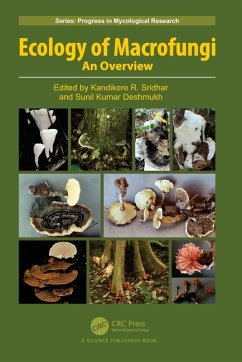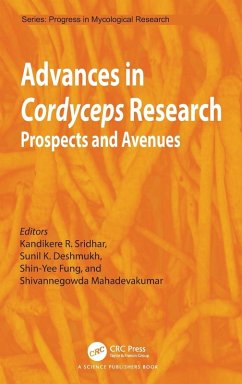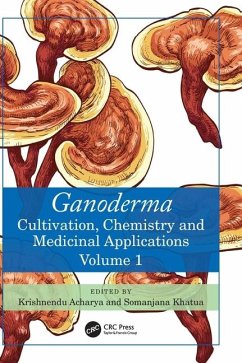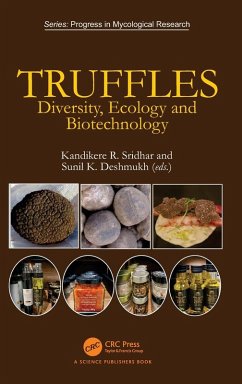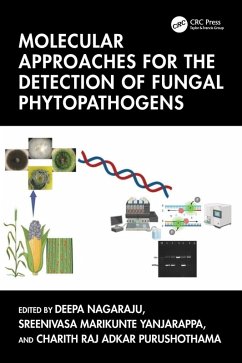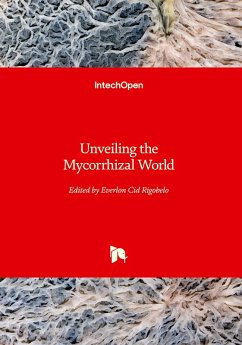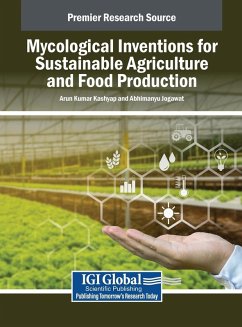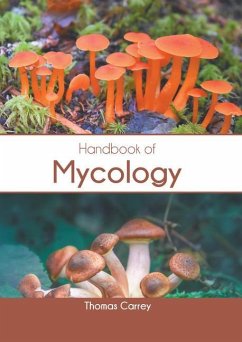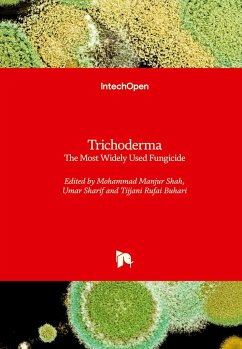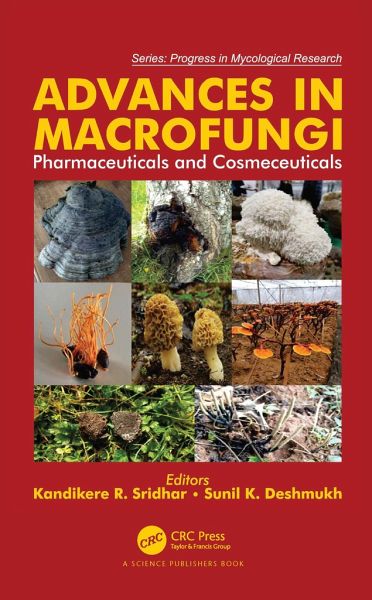
Advances in Macrofungi
Pharmaceuticals and Cosmeceuticals
Herausgeber: Sridhar, Kandikere R.; Deshmukh, Sunil Kumar
Versandkostenfrei!
Versandfertig in 1-2 Wochen
208,99 €
inkl. MwSt.
Weitere Ausgaben:

PAYBACK Punkte
104 °P sammeln!
Large scale cultivation of macrofungi is possible with fermentation, using easily accessible lignocellulosic agricultural residues utilising economical methods to generate substantial biomass, food and biofuels. Bioconversion of lignocellulosic wastes by macrofungi generates value-added fungal nutritional biomass for humans and livestock. Besides commercial cultivation techniques, other topics covered include healing potential of mushrooms, industrial opportunities, mycelium-based products, forest wild mushrooms and industrial applications of white rot fungi. This book addresses the various ap...
Large scale cultivation of macrofungi is possible with fermentation, using easily accessible lignocellulosic agricultural residues utilising economical methods to generate substantial biomass, food and biofuels. Bioconversion of lignocellulosic wastes by macrofungi generates value-added fungal nutritional biomass for humans and livestock. Besides commercial cultivation techniques, other topics covered include healing potential of mushrooms, industrial opportunities, mycelium-based products, forest wild mushrooms and industrial applications of white rot fungi. This book addresses the various applications of macrofungi. It encourages readers to explore non-conventional sources of nutrition as well as bioactive metabolites to serve as nutraceuticals. The volume emphasizes the significance of macrofungi as source of bioactive compounds to remedy human lifestyle diseases especially cancers and cardiovascular ailments along with immunostimulation potential by Cordyceps. This book also emphasises on the role of mushrooms as a source of cosmeceuticals, source of flavors, essence, scents and perfumes.




